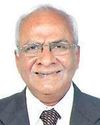Versuchen GOLD - Frei
Hospitals vs insurers: Policyholders bear the brunt of rising medical costs
Business Standard
|September 17, 2025
The ongoing tussle between several private hospitals and insurance companies over reimbursement rates and cashless claims has again trained the spotlight on the plight of policyholders, who experts believe were at the receiving end amid soaring medical inflation.
The simmering conflict came to a head last month when Niva Bupa suspended cashless services at Max Hospitals on August 16, citing unresolved reimbursement issues. Just days later, the Association of Healthcare Providers India (AHPI) advised member hospitals to suspend cashless hospitalisation for Bajaj Allianz, also flagging Care Health over similar pricing and settlement delays. The deadlock lasted eight days before partial resolutions emerged.
Industry veterans say such tussles are neither new nor unique to India. “Hospitals will always say that the rates are not good enough and insurers will always say it is very expensive. This is true for any country,” said a hospital executive requesting anonymity.
At the centre of the latest flashpoint lies the common empanelment program, launched to streamline cashless access and reduce multiple contracts. According to the executive, “The common empanelment is creating friction. The smaller hospitals will get squeezed more, because they have lesser negotiating power.”
Common empanelment initiative by the Insurance Regulatory & Development Authority of India (Irdai) in collaboration with General Insurance Council was designed to create a unified, nationwide cashless hospital network for policyholders and hospitals.
Diese Geschichte stammt aus der September 17, 2025-Ausgabe von Business Standard.
Abonnieren Sie Magzter GOLD, um auf Tausende kuratierter Premium-Geschichten und über 9.000 Zeitschriften und Zeitungen zuzugreifen.
Sie sind bereits Abonnent? Anmelden
WEITERE GESCHICHTEN VON Business Standard
Business Standard
Trai may look deeper at net neutrality norms
Reliance Jio had raised concerns over the need for clearer guidance on 5G network slicing
1 mins
November 17, 2025
Business Standard
India-China begin talks for a reverse-trade model for drugs
This would unlock export potential of $6 billion for Indian pharma companies
3 mins
November 17, 2025
Business Standard
Of Zubeen Garg & Assam’s political pitch
The state is learning that loss of a cultural icon can be more politically potent than any promise in an election manifesto, writes Aditi Bagaria
2 mins
November 17, 2025
Business Standard
DPDP Act: IT services firms likely to have a short learning curve
Indian information technology (IT) service providers will have a short learning curve to adapt to India's digital landscape after the Digital Personal Data Protection (DPDP) Act was notified last week as they have already been following such regulations in other parts of the world, especially Europe, for the last few years, according to experts.
2 mins
November 17, 2025
Business Standard
Unfulfilled potential of tribal heartland
Social and economic welfare: Still a long way to travel, explains Yash Kumar Singhal
3 mins
November 17, 2025
Business Standard
'Muskuraiye...?' Transport woes dent Lucknow's tagline
Metro ridership, bus fleet, and safety reforms struggle to match the city’s growth
4 mins
November 17, 2025

Business Standard
Export subsidies will help but we should aim to be globally competitive
Last week, the government approved the Export Promotion Mission (EPM) package of ₹25,060 crore and the Credit Guarantee Scheme for Exporters (CGSE) of ₹20,000 crore. Naturally, the exporters have welcomed the schemes because some subsidies and loans will come their way. However, I am not too enthused by such schemes because similar announcements earlier have not helped us achieve even a compounded aggregate growth rate (CAGR) of 3 per cent in exports or increase our share of global merchandise exports beyond 1.8 per cent in the past 11 years.
2 mins
November 17, 2025
Business Standard
TaMo evaluating both CNG, hybrids for larger cars, SUVs above 4 metres
Tata Motors Passenger Vehicles and Tata Passenger Electric Mobility, which draw 45 percent volumes from alternative or cleaner technologies such as CNG, EV etc, said that they are ‘well protected’ under Corporate Average Fuel Efficiency (CAFE) norms and hybrids do not need to be CAFE compliant.
2 mins
November 17, 2025
Business Standard
RE leads charge as Andhra bags ₹13 trn investment proposals at CII summit
THESE INVESTMENTS ARE EXPECTED TO BE A CATALYST IN THE STATE'S AMBITIOUS TARGET OF BECOMING A $2.4 TRN ECONOMY BY 2047
2 mins
November 17, 2025
Business Standard
India proposes UK-style totalisation pact with US
India has proposed signing a social security totalisation agreement with the United States (US) on the lines of the Double Contributions Convention (DCC) agreement it concluded with the United Kingdom (UK) earlier this year, official sources told Business Standard.
3 mins
November 17, 2025
Listen
Translate
Change font size
